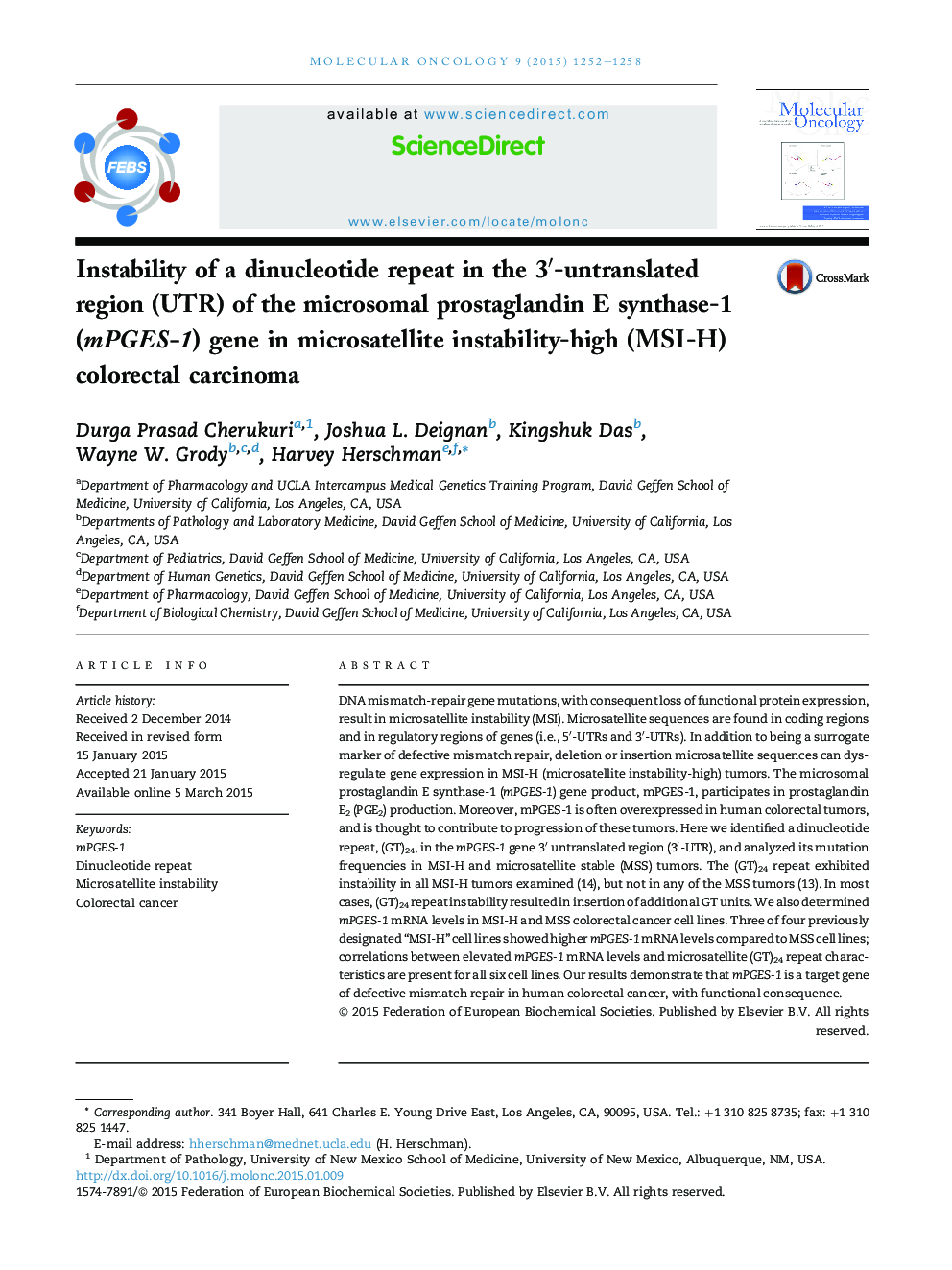| Article ID | Journal | Published Year | Pages | File Type |
|---|---|---|---|---|
| 10914647 | Molecular Oncology | 2015 | 7 Pages |
Abstract
DNA mismatch-repair gene mutations, with consequent loss of functional protein expression, result in microsatellite instability (MSI). Microsatellite sequences are found in coding regions and in regulatory regions of genes (i.e., 5â²-UTRs and 3â²-UTRs). In addition to being a surrogate marker of defective mismatch repair, deletion or insertion microsatellite sequences can dysregulate gene expression in MSI-H (microsatellite instability-high) tumors. The microsomal prostaglandin E synthase-1 (mPGES-1) gene product, mPGES-1, participates in prostaglandin E2 (PGE2) production. Moreover, mPGES-1 is often overexpressed in human colorectal tumors, and is thought to contribute to progression of these tumors. Here we identified a dinucleotide repeat, (GT)24, in the mPGES-1 gene 3â² untranslated region (3â²-UTR), and analyzed its mutation frequencies in MSI-H and microsatellite stable (MSS) tumors. The (GT)24 repeat exhibited instability in all MSI-H tumors examined (14), but not in any of the MSS tumors (13). In most cases, (GT)24 repeat instability resulted in insertion of additional GT units. We also determined mPGES-1 mRNA levels in MSI-H and MSS colorectal cancer cell lines. Three of four previously designated “MSI-H” cell lines showed higher mPGES-1 mRNA levels compared to MSS cell lines; correlations between elevated mPGES-1 mRNA levels and microsatellite (GT)24 repeat characteristics are present for all six cell lines. Our results demonstrate that mPGES-1 is a target gene of defective mismatch repair in human colorectal cancer, with functional consequence.
Related Topics
Life Sciences
Biochemistry, Genetics and Molecular Biology
Cancer Research
Authors
Durga Prasad Cherukuri, Joshua L. Deignan, Kingshuk Das, Wayne W. Grody, Harvey Herschman,
